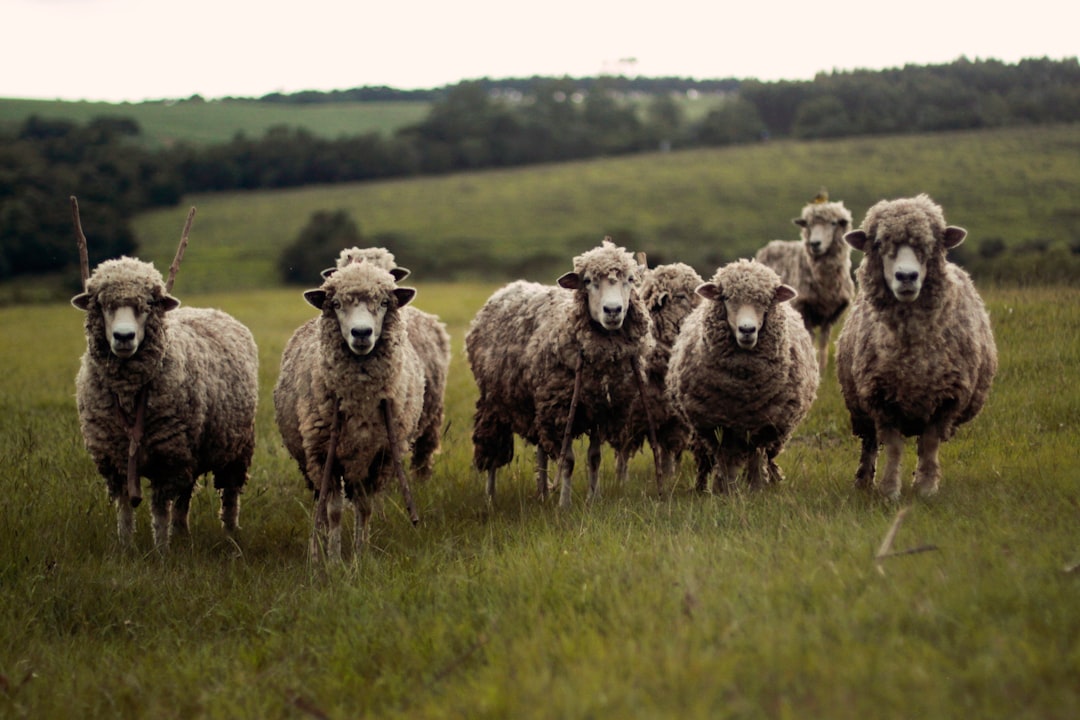Sheep farming is a vital part of agriculture worldwide, but it faces significant challenges from predators. Effective predator control is essential for maintaining healthy and productive sheep flocks while also considering conservation goals. This post explores various strategies for balancing conservation and livestock protection, highlighting both non-lethal and lethal methods used globally.
Non-Lethal Predator Control Strategies
Non-lethal methods are favored by many farmers and conservationists as they do not harm predators and can be effective in deterring them.
-
Guardian Animals: Livestock guardian animals, such as dogs and donkeys, are highly effective in protecting sheep from predators like coyotes, foxes, and dingoes. These animals bond with the flock and defend them aggressively when threatened.
-
Fencing: Predator-proof fencing is a crucial barrier between predators and sheep. High-tensile wire fencing, especially when electrified, can deter predators from entering pastures.
-
Visual and Audio Deterrents: Devices like flashing lights, scarecrows, and noise-making devices can startle predators and prevent them from approaching sheep. These should be moved regularly to maintain their effectiveness.
-
Removing Attractants: Proper disposal of dead stock and avoiding supplementary feeding that attracts predators are important practices. Sick or injured animals should be removed promptly to prevent attracting predators.
Lethal Predator Control Strategies
In some cases, lethal methods may be necessary to control persistent predators.
-
Trapping: Trapping is an effective way to remove troublesome predators, though it requires careful management to avoid harming non-target species.
-
Shooting: Shooting is a supplementary control method often used when other methods are insufficient. It should be carried out by licensed shooters to ensure safety and effectiveness.
Balancing Conservation and Livestock Protection
Balancing conservation goals with livestock protection involves integrating farming practices with environmental stewardship.
-
Conservation Grazing: This approach uses livestock to meet conservation objectives by controlling dominant vegetation, allowing threatened species to thrive. It promotes biodiversity while maintaining productive pastures.
-
Integrated Management Plans: Successful predator control programs often combine good husbandry practices with effective control methods. This integrated approach ensures that both conservation and livestock protection goals are met.
-
Community Engagement: Engaging local communities in predator management can foster cooperation and understanding between farmers and conservationists, leading to more effective and sustainable practices.
Conclusion
Predator control in sheep farming requires a thoughtful balance between protecting livestock and conserving wildlife. By employing a mix of non-lethal and lethal strategies, farmers can safeguard their flocks while contributing to environmental conservation. As global agricultural practices continue to evolve, adopting sustainable and integrated management approaches will be crucial for maintaining healthy ecosystems and productive sheep farming operations.
Citations:
- https://hsi.org.au/wp-content/uploads/2023/03/HSI-Predator-Smart-Farming-Digital.pdf
- https://www.mla.com.au/research-and-development/Genetics-and-breeding/sheep/reproduction/predation-management/
- https://tommysoutdoors.com/2024/10/05/conservation-grazing-balancing-food-production-and-biodiversity/
- http://www.sheep101.info/201/predatorcontrol.html
- https://www.ontariosheep.org/media/wrgnndwg/manage_1.pdf
- https://defrafarming.blog.gov.uk/graze-with-livestock-to-maintain-and-improve-habitats/
- https://jaguzafarm.com/support/controlling-predators-on-sheep-farms/
- https://ablamb.ca/images/documents/factsheets/Predator-Control.pdf
- https://www.fao.org/4/v8180t/v8180T14.htm
- https://www.owfd.ca/post/7-effective-predator-control-methods-for-sheep-farms
- https://www.proagrimedia.com/livestock/sheep-farming-made-easy-part-12-controlling-predators-on-sheep-farms/

Comments
No comments yet. Be the first to comment!
You must be logged in to comment. Login